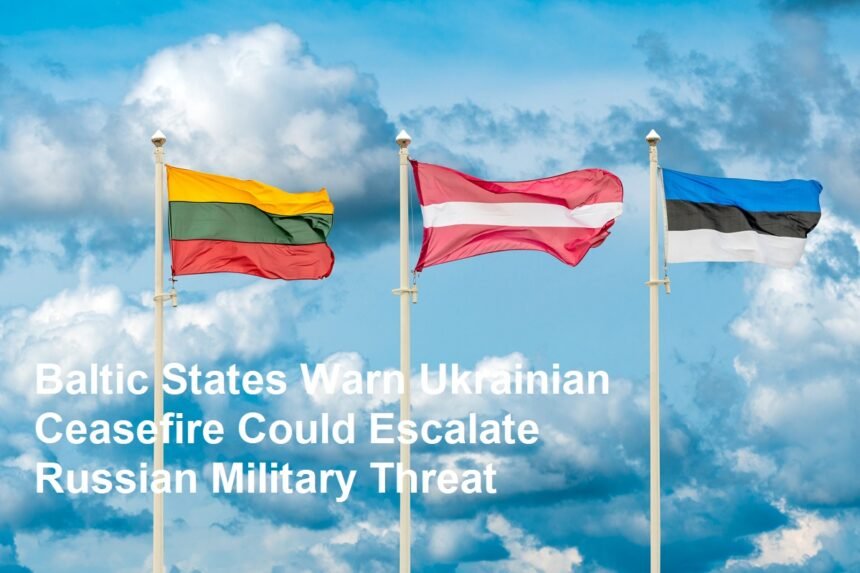In a recent development, officials from Lithuania, Latvia, and Estonia have raised serious concerns regarding the implementation of a ceasefire in Ukraine, labeling it as a potential threat to regional security. The Baltic nations assert that the move could inadvertently heighten Russia’s military presence near their borders, a prospect that has alarmed local leaders and defense strategists.
Officials from the three Baltic states argued that while the ceasefire might be intended to reduce hostilities and foster dialogue, it also presents an opportunity for Russia to recalibrate its military strategy. They claim that the lull in active combat might allow Moscow to reposition its forces, enhance its logistical capabilities, and potentially escalate its military operations along the western frontier. This, they warn, would shift the balance of power in the region and increase the risk of an aggressive posture against NATO members.
During a joint press briefing, the defense ministers of Lithuania, Latvia, and Estonia expressed that the ceasefire, if not carefully monitored, could lead to an unintended build-up of Russian troops and modern military equipment near their borders. “The current ceasefire agreement in Ukraine, while it may seem like a de-escalation step, can paradoxically provide Russia with the breathing room it needs to strengthen its military operations in close proximity to our territories,” one official commented. This perspective reflects a broader anxiety among Baltic leaders, who see themselves as the front line against any potential Russian resurgence.
Analysts in the region have long pointed to the complex interplay between political maneuvers and military strategy in Eastern Europe. They argue that Russia’s history of using ceasefires as tactical pauses to regroup and enhance military capabilities is well documented. The Baltic officials, echoing these concerns, fear that Moscow might once again exploit a period of reduced conflict to bolster its presence along NATO’s eastern boundary.
Furthermore, the Baltic states have called for heightened vigilance and enhanced joint military exercises with NATO forces as a precautionary measure. “It is imperative that we maintain a robust deterrence posture,” a spokesperson for one of the defense ministries noted. By ramping up their defensive readiness and increasing coordination with allies, the Baltic nations aim to counter any potential Russian advantage gained during this ceasefire period. They insist that an effective and visible deterrence is essential not only to protect their sovereignty but also to uphold the security framework of the broader region.
The international response to this warning has been mixed. Some European leaders sympathize with the Baltic concerns, emphasizing the need for transparency and regular monitoring of Russian military movements in the area. Others, however, caution that any aggressive rhetoric could further destabilize an already tense situation and hamper efforts to negotiate long-term peace in Ukraine. As the situation develops, diplomats are urging both sides to engage in constructive dialogue and to avoid actions that could trigger an unintended escalation.
The ceasefire in Ukraine, which was broadly hailed as a potential breakthrough after years of conflict, now finds itself under intense scrutiny from neighboring countries. For the Baltic states, the threat is not just theoretical—it is a clear warning that regional security can be compromised by shifts in military strategy that occur during periods of reduced hostilities. They maintain that any pause in fighting should be accompanied by stringent monitoring measures and robust countermeasures to ensure that the ceasefire does not serve as a cover for military build-up.
In conclusion, the warnings from Lithuania, Latvia, and Estonia underscore the delicate balance of power in Eastern Europe. While the ceasefire in Ukraine could pave the way for diplomatic resolutions and a reduction in hostilities, it also carries the risk of enabling Russia to reassert its military strength near NATO’s borders. The coming weeks will be critical in determining whether these concerns materialize and how the international community will respond to safeguard the security of the region.












